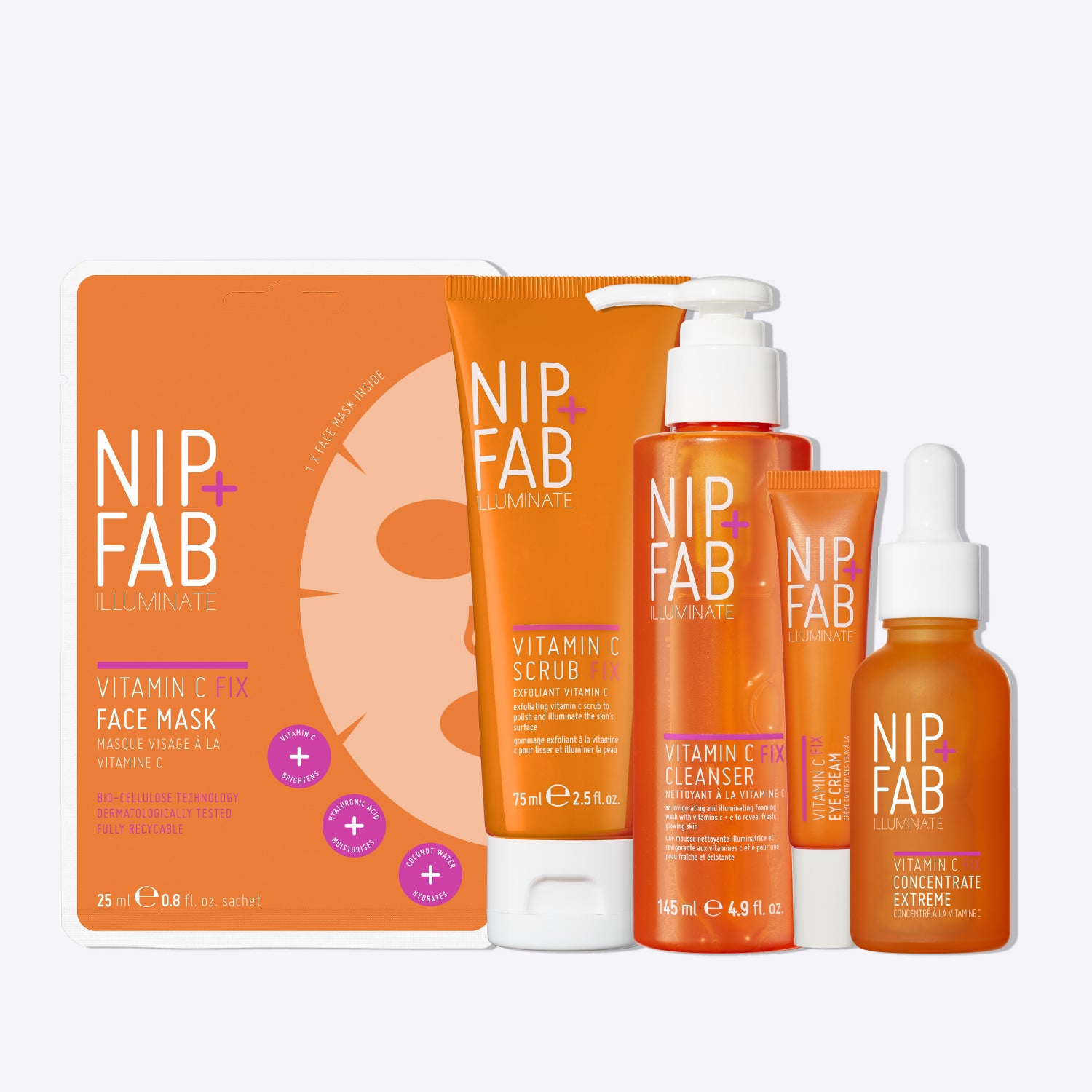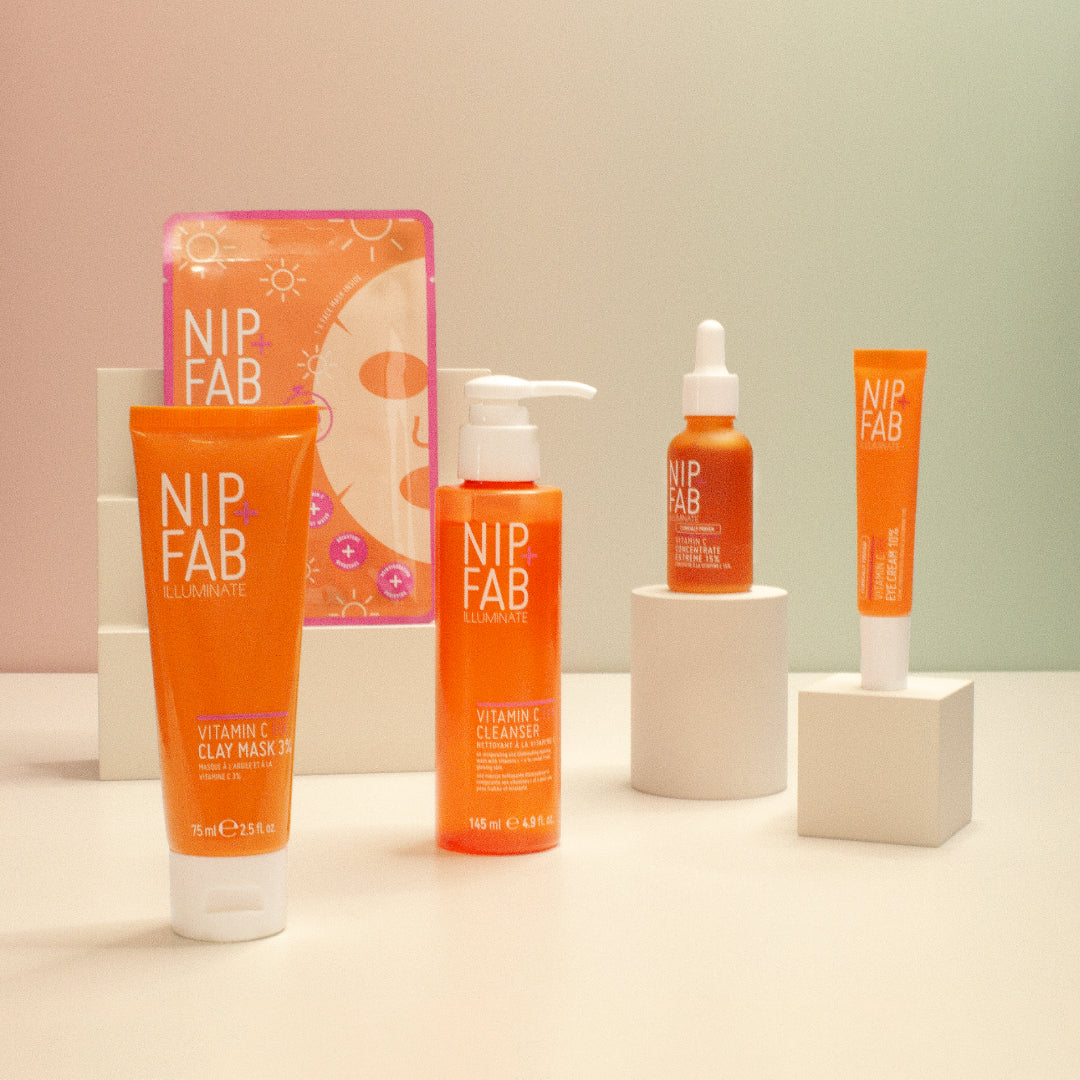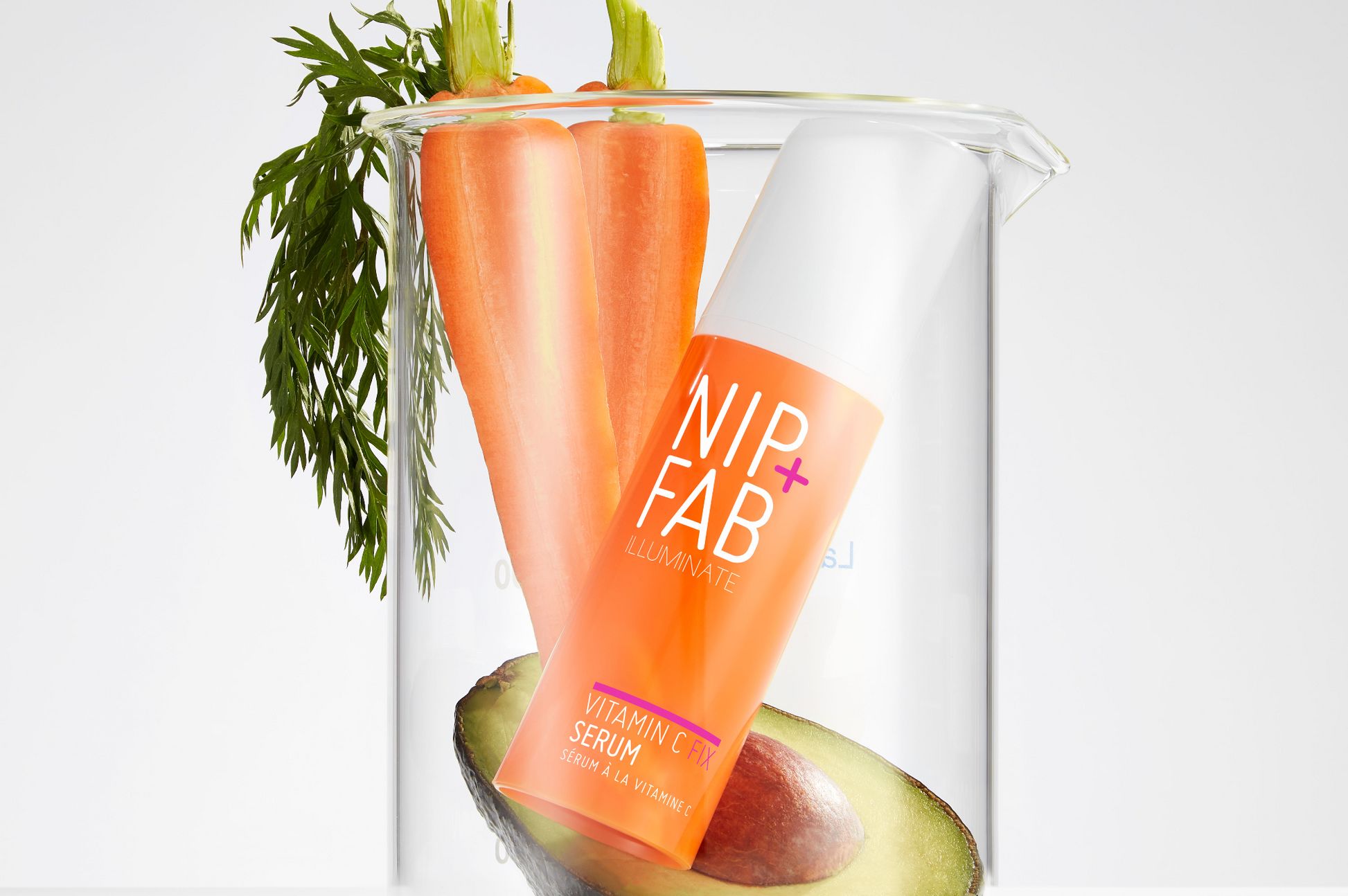


It’s one of skincare’s true warrior ingredients when it comes to skin benefits and is arguably the most popular ingredient on the market – you just need to look at the sheer volume of products powered by it on the high street and the luxury skincare market. However, vitamin C is often shrouded in mystery when it comes to how it works and its benefits, as well as what it can be used with, so we’ve put together a comprehensive guide to help you can get the most out of the hero ingredient.

What is vitamin C?
Vitamin C is an effective antioxidant that protects skin from pollution, environmental damage and sun damage. It’s found naturally in our skin, but depletes as we get older, meaning we need to replenish it to keep skin in optimum condition.
What are the benefits of vitamin C for skin?
The short answer is many. As well as the protective power it harnesses against the above external factors (all of which cause oxidative stress to skin – the science way of saying cell damage), vitamin C’s acidity also encourages skin to heal itself, which visibly reduces existing damage like sun spots, scarring and pigmentation. This has a brightening effect, not to mention a positive impact on skin tone. What’s more, vitamin C also boosts collagen production, which is the substance responsible for keeping skin plump and smooth.

Why does vitamin C come in different forms and concentrations?
If you’ve sought out vitamin C in the past, you may have noticed that some products have different names for vitamin C and different concentrations. Vitamin C’s purest form is known as ascorbic acid, and for it to be effective a product needs to contain its most stable form, l-ascorbic acid, ideally at a higher concentration.
However, ascorbic acid is notoriously unstable in water and highly susceptible to oxidation via heat, light, air and water. Oxidation results in the solution turning brown and can result in it becoming less effective on contact with skin. This makes it challenging for skincare brands to create a stable vitamin C formula that’s also effective.
That’s why we’ve recently upgraded our Vitamin C Fix formula, specifically in our serum. While our old formula was good (our serum is one of our bestsellers for a reason), we wanted to make it even more effective with a higher concentration of vitamin C. Our formula now contains three stable forms of vitamin C, which ensures improved stability and a longer shelf life – so much less chance of oxidation. Plus, our three stabilised forms of vitamin C have a proven conversion to ascorbic acid on contact with skin and each has its own benefit, such as a time-released effect and deeper skin penetration. You can read more about our formula upgrade here

Who can use vitamin C?
The one-word answer is: everyone. One of the biggest USPs for vitamin C is that it is suitable for all skin types and has benefits that everyone can reap. However, if your skin is pigmented, sun damaged or has any scarring that you’d like to fade, this should be your go-to ingredient.
If you’re new to vitamin C, we’d recommend doing a patch test first to see how your skin reacts and introducing it slowly from there. As with any ingredient, there’s never zero chance of your skin reacting, especially if the concentration of the formula is high. But generally speaking, vitamin C is one of the ingredients that works for everyone.
When should I use it and what can it be used with?
Due to vitamin C’s powerful antioxidant and skin-protecting benefits, we recommend using it in the morning to shield skin from environmental stresses throughout the day, particularly if you live in a city. However, it can also be used at night.
One of vitamin C’s best skincare friends is retinol. They work in synergy to boost collagen production, which is great news if you have aging skin and want to tackle concerns likes loss of elasticity, fine lines and wrinkles. In terms of other actives, you can use vitamin C with pretty much any other ingredient, but we do recommend spacing out some pairings in your routine. You can find a definitive guide to pairing ingredients together here